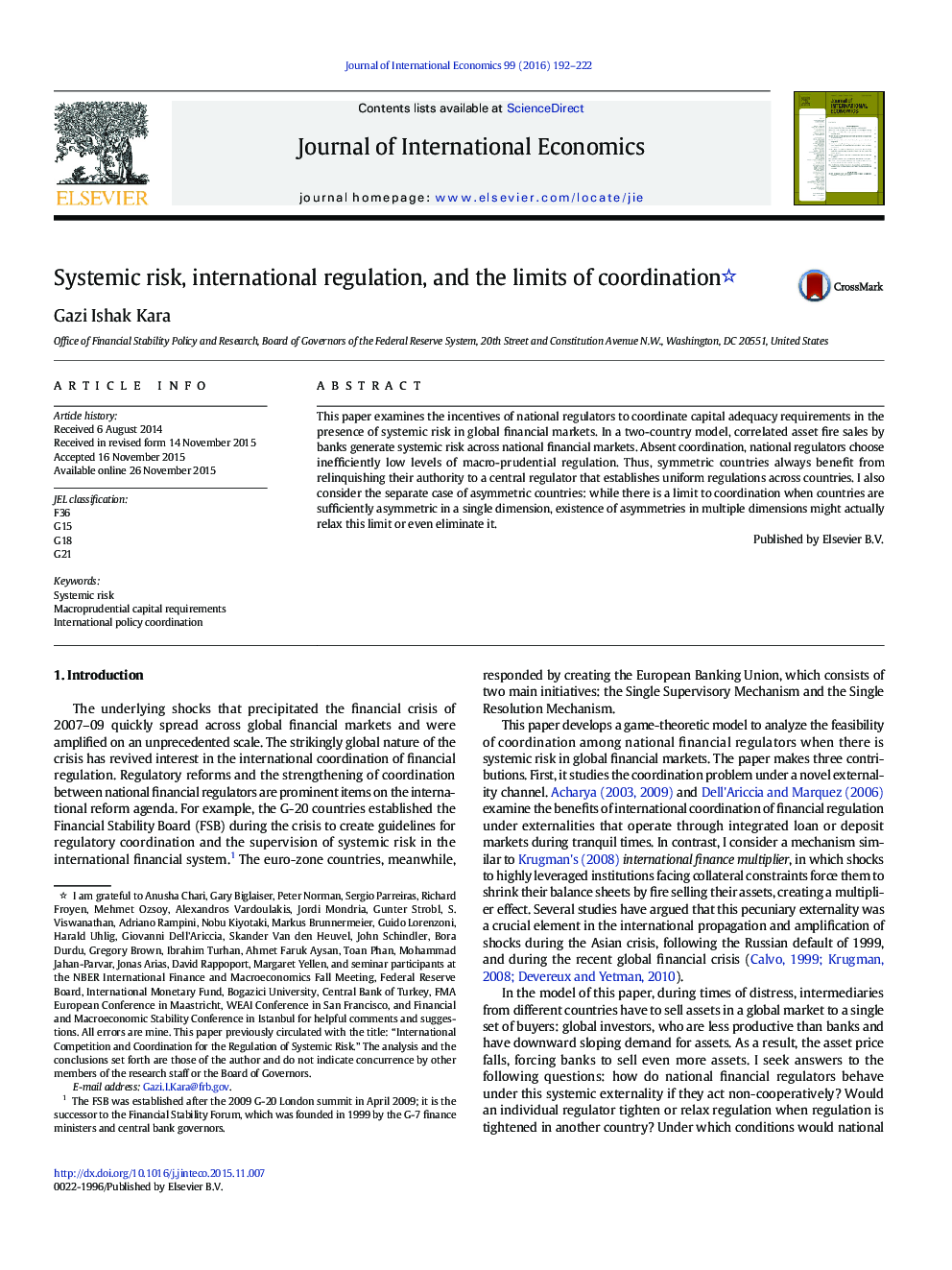| Article ID | Journal | Published Year | Pages | File Type |
|---|---|---|---|---|
| 7364131 | Journal of International Economics | 2016 | 31 Pages |
Abstract
This paper examines the incentives of national regulators to coordinate capital adequacy requirements in the presence of systemic risk in global financial markets. In a two-country model, correlated asset fire sales by banks generate systemic risk across national financial markets. Absent coordination, national regulators choose inefficiently low levels of macro-prudential regulation. Thus, symmetric countries always benefit from relinquishing their authority to a central regulator that establishes uniform regulations across countries. I also consider the separate case of asymmetric countries: while there is a limit to coordination when countries are sufficiently asymmetric in a single dimension, existence of asymmetries in multiple dimensions might actually relax this limit or even eliminate it.
Related Topics
Social Sciences and Humanities
Economics, Econometrics and Finance
Economics and Econometrics
Authors
Gazi Ishak Kara,
